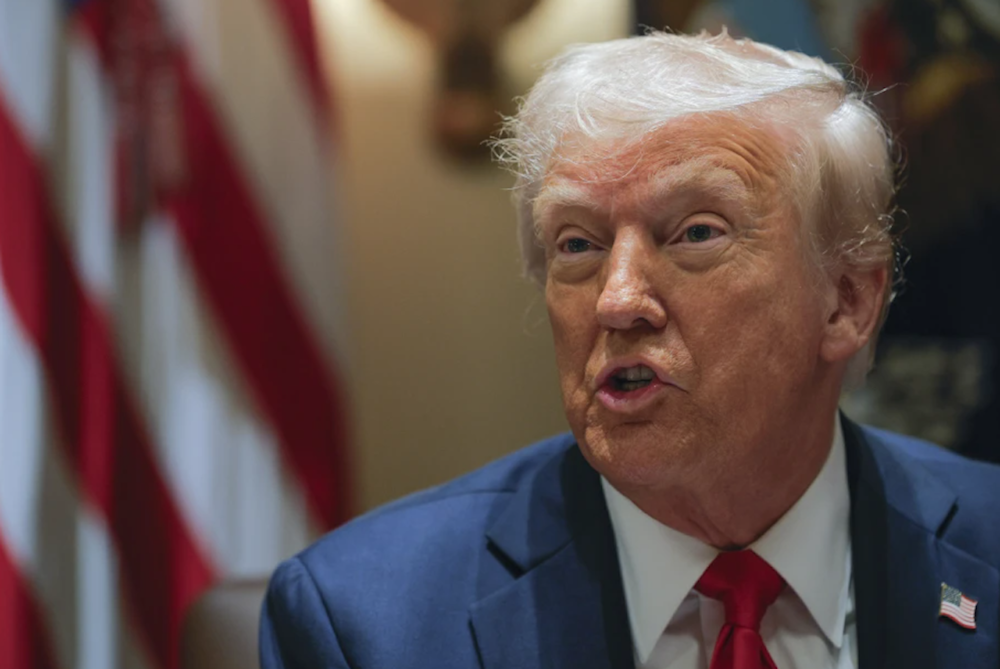Trump set to announce tariffs on auto imports
The Center for Automotive Research has previously predicted that US tariffs, including those on metals and imported vehicles, could raise the cost of a car by thousands of dollars and harm the labor market.
-

US President Donald Trump speaks during a Cabinet meeting at the White House in Washington on February 26, 2025. (AP)
US President Donald Trump will impose tariffs on vehicle imports on Wednesday, according to the White House, escalating tensions with trading partners ahead of more charges anticipated next week.
White House Press Secretary Karoline Leavitt informed reporters that Trump will announce the "auto industry" tariffs in an address, but did not elaborate on their scope.
Since becoming president in January, Trump has slapped tariffs on imports from key US trade partners Canada, Mexico, and China, as well as a 25% charge on steel and aluminum imports..
The Guardian earlier reported that countries across Europe, Canada, and Scandinavia are turning their backs on American goods in protest, including European car buyers rejecting Teslas produced by Elon Musk.
He has already granted automakers a temporary respite from the taxes impacting North America
Financial markets wary
Uncertainty over Trump's trade intentions, as well as concerns that they would cause a slump, have roiled financial markets, and consumer confidence has fallen in recent months as a result of tariff fears.
Following Leavitt's statements, shares of major carmaker Ford fell 1.8 percent, while General Motors fell 1.9 percent.
In February, Trump announced that US taxes on imported autos would be "in the neighborhood of 25 percent."
Targeting imported autos may strain relations with nations such as Japan, South Korea, Canada, Mexico, and Germany, all of whom are important US allies. Approximately 50% of automobiles sold in the United States are built within the nation. Mexico and Canada account for almost half of imports, with Japan, South Korea, and Germany all contributing significantly.
The Center for Automotive Research has previously predicted that US tariffs, including those on metals and imported vehicles, could raise the cost of a car by thousands of dollars and harm the labor market.
Aside from the car industry, Trump has proposed sector-specific levies on medicines and semiconductors.
Wednesday's auto announcement comes ahead of April 2, which Trump has declared "Liberation Day" for the world's largest economy.
He has pledged reciprocal taxes on the date, customized to particular trading partners, to correct practices that Washington considers unfair.
It is uncertain if sector-specific tariffs will be announced on April 2, with the White House stating this week that the situation remains fluid.
Trump told reporters on Monday that he would "give a lot of countries breaks" in the future, but did not elaborate further.
As Trump's reciprocal tariff deadline approaches, US trade partners have stepped up discussions with Washington, with EU trade director Maros Sefcovic meeting with his American counterparts, Commerce Secretary Howard Lutnick and Trade Envoy Jamieson Greer.
On social media, Sefcovic stated that "the EU's priority is a fair, balanced deal instead of unjustified tariffs."

 3 Min Read
3 Min Read








